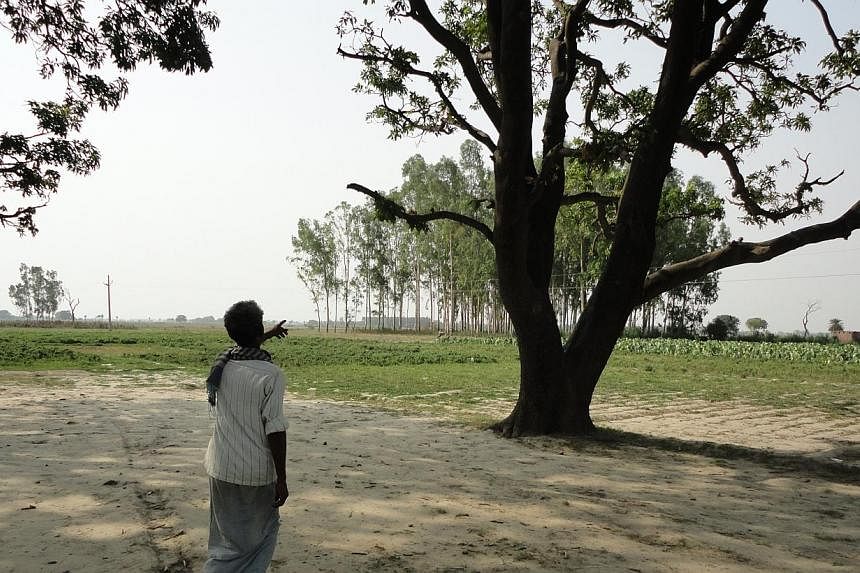LUCKNOW, India (AFP) - An Indian court on Thursday freed three men detained earlier this year on suspicion of raping and murdering two teenage girls found hanged outside their village, in a case that sparked global outrage.
Judge Anil Kumar Sharma ordered the men's release after India's top investigator, the Central Bureau of Investigation (CBI), said it did not have enough evidence to prosecute them.
Their release came days after two police officers detained on suspicion of involvement in the case were freed on the same grounds.
The two cousins, aged 12 and 14, were found hanging from a tree in an impoverished village in northern Uttar Pradesh state in May.
The girls were reported at the time to have been gang-raped and murdered after going into the fields to relieve themselves because their homes, like most in their village in Badaun district, lacked lavatories.
The alleged attack sparked public outrage after the family complained that police had failed to take their case seriously because they came from a lower caste.
All five accused have now been released after spending 90 days in detention, the maximum time that a person can be held without being charged in India.
"Anil Sharma heard the case of my clients...and he granted bail to all three of them," Jawahar Singh Yadav, lawyer for the three accused, told AFP by phone on Thursday.
They were freed on a bond of 200,000 rupees (S$4,158.15) and on condition that they do not tamper with evidence or threaten witnesses for future court hearings.
Media reports said the CBI's decision was based on forensic tests and polygraphs that had ruled out sexual assault in the case.
The CBI however told AFP last week that the move did not mean that the men had been given a "clean chit".
India brought in tougher rape laws last year for crimes against women after the fatal gang-rape of a physiotherapy student on a bus in New Delhi in December 2012.

